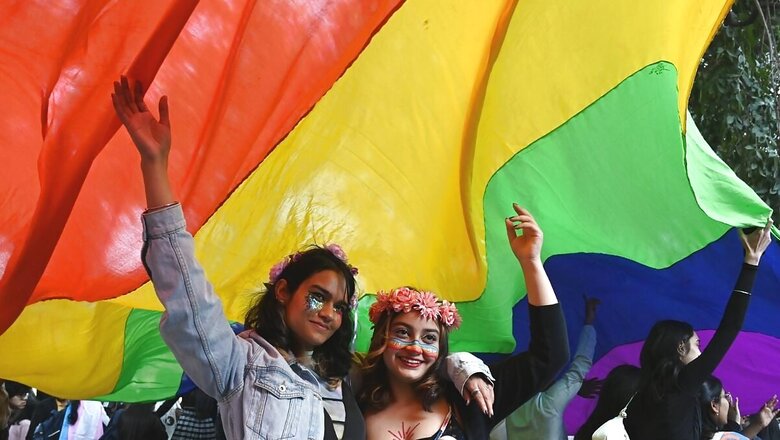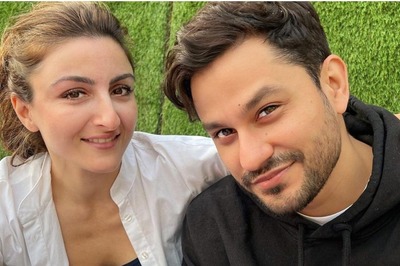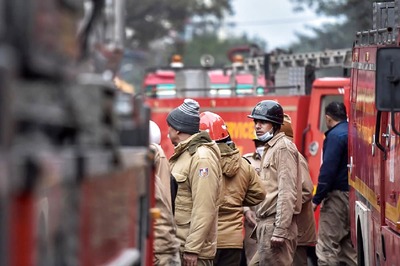
views
The bench of five judges led by CJI Chandrachud cautioned the petitioners to not venture into the domain of personal laws and limit the argument to Special Marriage Act and certain other laws like Foreign Marriage Act and Citizenship Act. The court did not want to enter the troubled waters of personal laws. But can the court afford to do that? Can this debate around recognition of same sex marriage be settled without dealing with the troublesome aspect of personal laws in the country?
The Hindu custom of Saptpadi or Muslim custom of a Nikah, a church wedding or any other customary wedding is considered a legal marriage in India. The concept of marriage is not a common law or legal proposition. It’s a religion-driven concept. Religion has founded the concept of marriage that the law protected.
The exception of Special Marriage Act should be understood as an exception, a tool to deal with inter-faith marriages without having either spouse give up their parent faith or religion. Even under the Special Marriage Act, a class of forbidden relationships cannot get married — like brothers and sisters, marriage with mother or father and many others. The class of these forbidden relationships is derived from religion and has no other basis. Even the so-called secular laws around marriage derive their notions and concepts from personal practices and customs.
Simply put, the intervention of civil law in marriage is only a few decades old for Hindus, Buddhists, Sikhs and Parsis and unknown to the followers of the Muslim personal law. Marriage operates as an institution proscribed by religion and protected by law. No religion grants sanction to gay marriages. Not even the diverse, open religion of Hinduism.
The Supreme Court bench’s suggestion that the debate for recognition of same sex marriage should keep the issue of personal laws aside will further complicate the maze of personal laws and its cumbersome relationship with Indian Constitution.
The approach is problematic and almost amounts to sweeping dust under the carpet. Here is the problem — the moment marriage is declared a fundamental right protected under Article 14 (Right to Equality), Article 19 (Freedom of Expression) and Article 21 (Right to Life), it shall be open for constitutional courts to test personal laws against this newly recognised fundamental right.
The courts eventually will have to deal with the question of personal laws. Most personal laws are codified — for example the Hindu personal law or the Christian Marriage Act. All these Acts of Parliament would be put under judicial scrutiny for violating fundamental right to marriage because they don’t allow same sex couples to marry.
Barring the Muslim Personal Law, which is largely uncodified, all other personal laws codified via statutes shall countenance this question. By virtue of them being codified, the courts can test their constitutionality for discrimination based on sexual orientation. The uncodified Muslim Personal law shall remain insulated from this scrutiny.
If marriage is a fundamental right protected under the Constitution and the court decides to recognise and protect it, it must be done despite personal laws and not by keeping the issue on the backburner. It’s also an artificial distinction that the court is drawing. If the court is to adjudicate on the existence of a fundamental right, it cannot be done piecemeal. A fundamental right cannot be recognised only in the world of civil law and diminished in the sphere of personal laws. If the right is fundamental to a citizen, it must be protected.
Most personal laws are archaic, yet they enjoy judicial protection. The garb of minority rights is often used to protect such practices. Either the court takes the leap of venturing into the deep waters without drawing the artificial distinction of civil laws and personal laws or does not venture into the issue at all. If marriage is a fundamental right, then each citizen is entitled to it. Each Hindu, Muslim, Christian or person from any other community is also entitled to it.
The absence of a Uniform Civil Code in India, the wide range of personal laws, along with the Sixth Schedule of Indian Constitution which protects special rights of indigenous groups, are the biggest impediments to recognition of same sex marriage at par with heterosexual couples.
The mighty court which has protected the rights of the vulnerable and heard the issues of the ignored minority cannot skirt the issue of personal laws. Personal laws must be subject to the test of fundamental rights. For decades, the feminist movement has challenged the bastion of personal laws and negotiated equality with legal and social system. The LGBTQ movement and their demand for equality should strike another blow to discriminatory personal laws. The issue should not be skirted neither by the court nor by the community.
Read all the Latest India News here



















Comments
0 comment